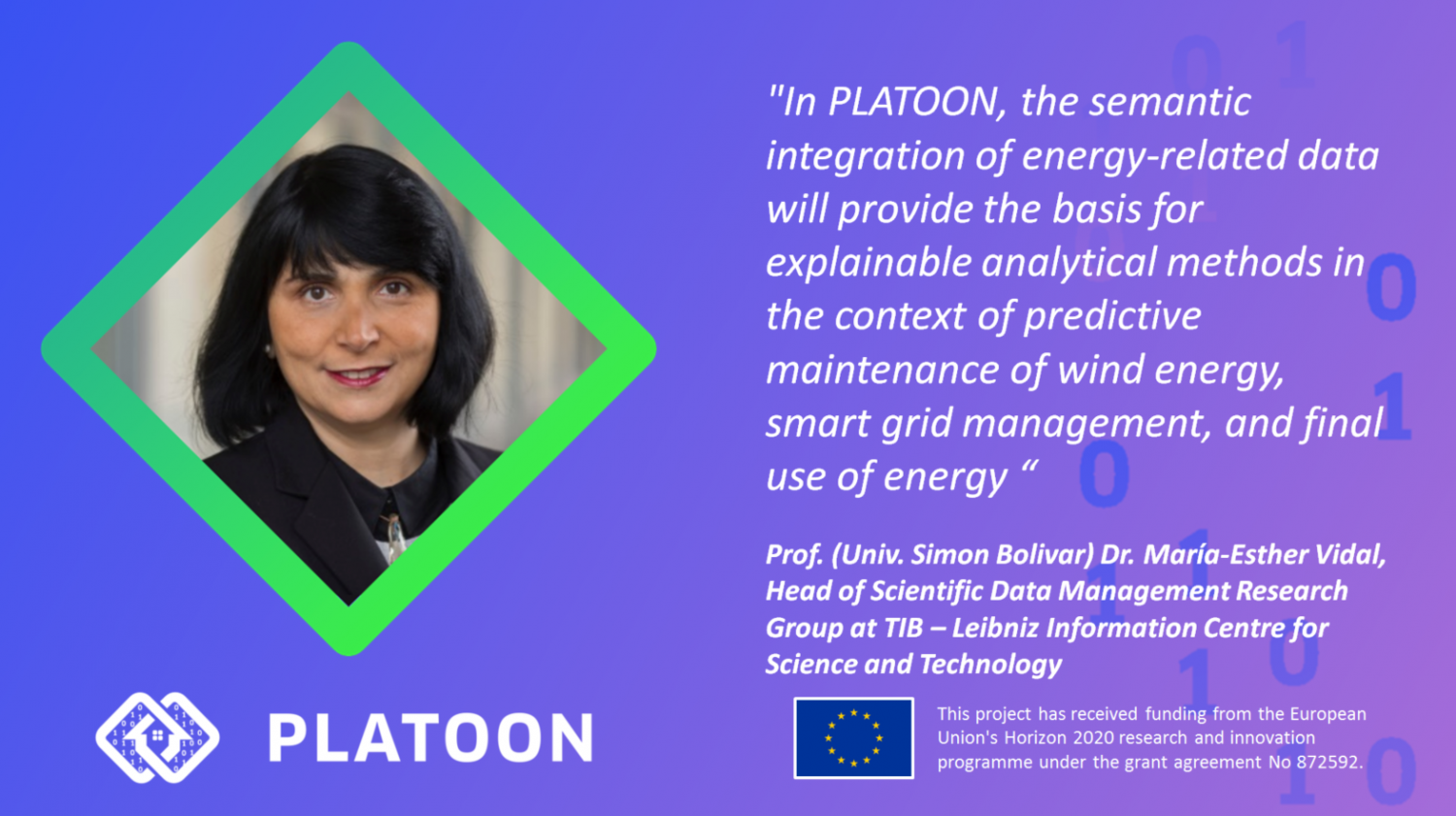
Prof. Maria-Esther Vidal is the Head of the Scientific Data Management Research Group of TIB. The Scientific Data Management Research Group contributes to the strategic goal of the TIB to support researchers in every phase of scientific work, especially with data. The aim of the research group is to be at the forefront of research and development of research data infrastructures and to support data-intensive applications in science.
Maria-Esther, what is your organisation’s role in PLATOON?
I lead the Scientific Data Management Research Group at TIB, and we research on efficient and scalable methods for the integration of large amounts of data as well as knowledge representation and discovery. Our developed applications are used in various domains (especially, biomedicine and digital libraries) to turn heterogeneous data into usable knowledge. Within the context of PLATOON, the Scientific Data Management Research Group of TIB leads the tasks required to support the integration of heterogeneous data sources and semantification of Big Data on demand. These tasks include:
- Semantic data integration;
- Query processing techniques over heterogeneous data sources; and
- Data governance.
The PLATOON data sources are heterogeneous and data models will be devised to define the meaning of the data in a standardised formal specification. TIB will contribute to the definition of the PLATOON data model. The Big data management techniques to be developed by TIB will be able to exploit the description of the data sources in order to solve interoperability issues and provide a unified representation of the integrated data. These data management techniques will be integrated to the Big data analytical tool SANSA, and will equip the PLATOON framework with the ability to explain the provenance and decisions made to integrate the data sources. These semantic descriptions of the integrated data will represent a pivotal foundation for data governance, as well as for the analytical methods to be defined in the context of predictive maintenance of wind-energy, smart grid management, and final use of energy. Moreover, query processing techniques to be developed by TIB, will enable the exploration of the integrated data as well as the results of the analytical methods.
How does PLATOON relate with you and your team’s background and interests?
In TIB, I am leading the research group of Scientific Data Management where we investigate effective and efficient methods to manage big data. In PLATOON, we are leading the tasks related to two very important problems of big data management: data integration as well as data collection and harmonisation.
How will PLATOON digitalise and contribute to the development of the energy sector (e.g. with big data, edge computing and AI) in your opinion?
Big data management and knowledge discovery will enable us to uncover patterns in PLATOON data sources. These patterns will make features in the data more understandable; they will also provide the basis for the definition of new AI tools that will enhance energy management at different steps of the energy supply chain.
Which stakeholder groups can benefit from PLATOON?
Commissions for Energy Regulators, regional energy companies, and research institutes in the area of energy.
How do you expect the energy sector to be like in the future?
I expect the energy sector to become more efficient and much cleaner in the future. PLATOON will provide relevant stakeholders with tools and outcomes to define regulations and new policies for the development of the energy sector.
Which are the most significant challenges and opportunities related to the digitalisation of the energy sector in your opinion?
Big data is characterised by complexity issues, e.g. variety and veracity that will need to be effectively addressed in all the steps of the PLATOON framework. Additionally, enforcing privacy and data access regulations imposed by the data providers is another challenge demanded to be achieved in the project.
Which are your expectations of the PLATOON project?
I expect to contribute to the development of Big Data management that ensure high data quality, as well as efficient access of the project’s knowledge warehouse in the Federated Data Solution Space.
Thank you, Maria-Esther, for this interesting interview!